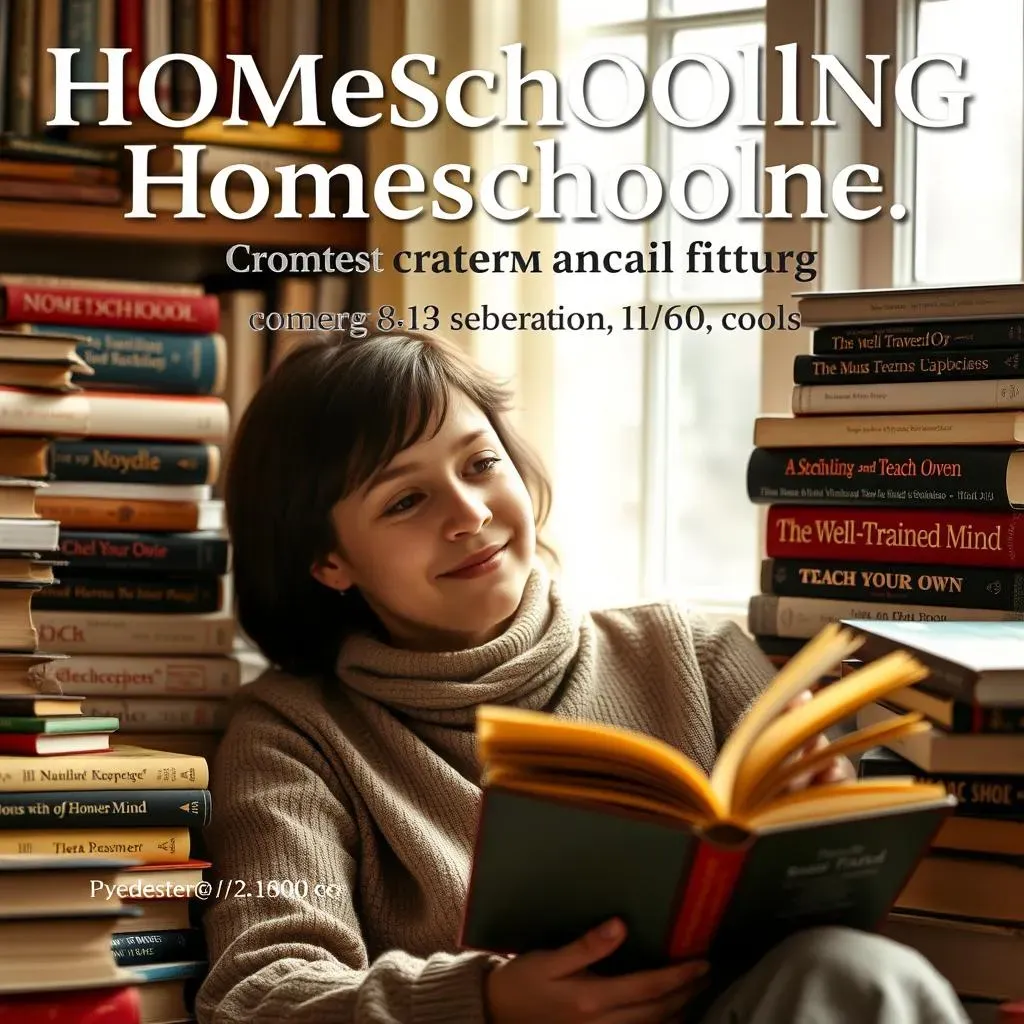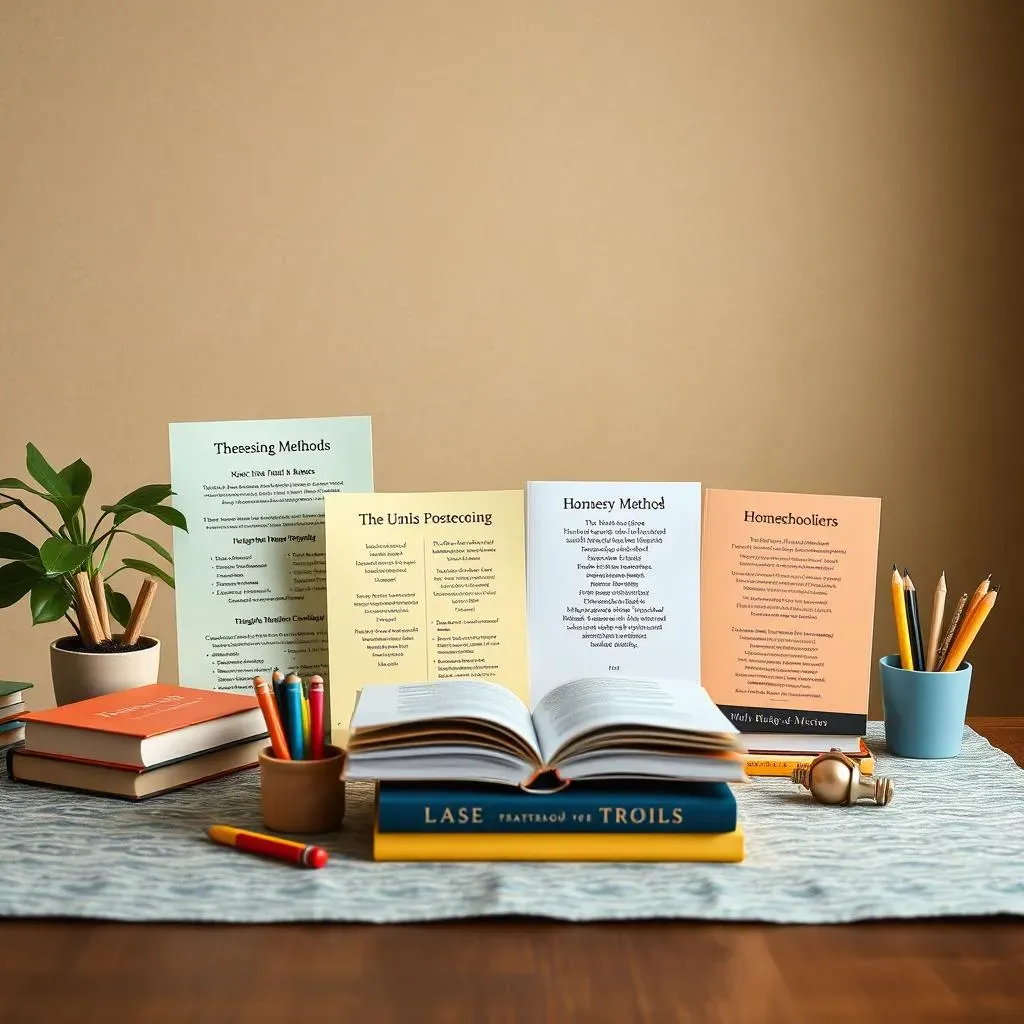Table of Contents
Thinking about homeschooling? It can feel like diving into a huge ocean of information. Where do you even start? Well, you grab a life raft, or in this case, some great books on homeschooling. This isn't just a list of titles; it's a curated collection of guides, philosophies, and practical advice designed to help you navigate the exciting world of home education. We've gathered some of the best resources to help you whether you're just starting to consider homeschooling or you are looking for new ideas and methods. From understanding different educational approaches to picking the right curriculum, this article will act as your starting point. We'll explore must-read books for beginners, examine various homeschooling methods, and provide practical tips from seasoned educators. So, grab a cup of coffee, settle in, and let's explore the world of books on homeschooling together. Let's make your homeschooling adventure an informed and enjoyable one!
MustRead Books for Homeschooling Newbies
MustRead Books for Homeschooling Newbies
Getting Started Right
so you're thinking about homeschooling, huh? It's a big step, and it can feel overwhelming. But don't worry, there are some fantastic books out there that can act as your compass. Think of them as your friendly guides, helping you navigate the initial questions and fears. These aren't just textbooks; they're like having a wise friend who's been there, done that, and is ready to share their secrets. They cover everything from the basic how-to's to the more philosophical "whys," making sure you're not just jumping in blind.
One of the first things you'll want to wrap your head around is the different approaches to homeschooling. Some books will introduce you to classical education, others might talk about unschooling. It's like choosing a flavor of ice cream - there's no one 'right' way, just what fits your family best. These initial reads will help you figure out what resonates with your style and your kid's learning needs. It's about finding your groove, not fitting into someone else's mold. So, let's get reading, shall we?
Key Books to Begin With
Now, let's talk specifics. There are a few books that seem to always pop up when people discuss must-reads for new homeschoolers. For instance, "The Well-Trained Mind" by Susan Wise Bauer is a classic for those interested in a classical approach. It's a hefty book, but it's like a complete roadmap. Then there's "Teach Your Own" by John Holt, which is great for understanding the philosophy behind homeschooling and fostering a love of learning. And don't forget about "A Charlotte Mason Education" by Catherine Levison if you are curious about the Charlotte Mason method.
These books aren't just about teaching facts; they're about creating a learning environment. They’ll help you understand how to nurture curiosity, how to manage your time, and how to make learning a fun, family-centered experience. It’s not about recreating school at home. It's about making learning a part of life. They also tackle the questions that might be keeping you up at night. Like, "Am I qualified to do this?" or "How do I make sure my kid is getting a well-rounded education?" Trust me, you’re not alone in asking those questions.
Book Title | Author | Focus |
|---|---|---|
The Well-Trained Mind | Susan Wise Bauer | Classical Education |
Teach Your Own | John Holt | Philosophy of Homeschooling |
A Charlotte Mason Education | Catherine Levison | Charlotte Mason Method |
Deep Dive into Homeschooling Methods and Philosophies
Deep Dive into Homeschooling Methods and Philosophies
Exploring the Variety of Approaches
so you've dipped your toes into the world of homeschooling, and now you're probably wondering, "What are my options?" It's not just about sitting at the kitchen table with textbooks. There's a whole spectrum of philosophies and methods, each with its own unique approach to learning. Think of it like a buffet – you get to pick what works best for your family. From the structured approach of classical education to the more free-flowing style of unschooling, the choices can be both exciting and a bit overwhelming.
Classical education, for example, emphasizes a structured approach, focusing on the "trivium" of grammar, logic, and rhetoric. It's all about building a solid foundation of knowledge. Then there's the Montessori method, which is all about hands-on learning and child-led discovery. And of course, unschooling throws the traditional curriculum out the window, embracing real-life learning experiences. Each method is designed with different learning styles and goals in mind, so it is important to take a look at each approach before committing.
Finding What Fits Your Family
It's not just about picking a method that sounds cool; it's about finding one that clicks with your family's values and your child's personality. Do you thrive on structure and routine? Then classical education might be a good fit. Or are you more of a free spirit who believes learning should happen organically? Then unschooling might be more up your alley. The beauty of homeschooling is that you have the freedom to adapt and change as you go. You're not stuck with a rigid system.
Many parents find that they blend different methods, taking bits and pieces from each to create a unique approach that works for their kids. It's a bit like cooking – you might start with a recipe, but you end up adding your own ingredients and creating something that’s uniquely yours. Don't be afraid to experiment and see what sparks joy and curiosity in your child. This journey of discovery is just as much for you as it is for them. The most important thing is that your children are learning and growing in a way that is both meaningful and engaging.
Method | Key Characteristics | Best For |
|---|---|---|
Classical Education | Structured, emphasizes grammar, logic, rhetoric | Families seeking a traditional approach |
Montessori | Hands-on, child-led learning | Independent learners |
Unschooling | Flexible, real-life learning experiences | Families who value freedom and exploration |
Top Books on Homeschooling for Curriculum and Practical Tips
Top Books on Homeschooling for Curriculum and Practical Tips
Curriculum Choices and Planning
Alright, so you’ve got the big picture of homeschooling down, now it’s time for the nitty-gritty: curriculum. Choosing what to teach and how to teach it can feel like trying to solve a giant puzzle, but don't worry, there are books that can help. These resources aren't just catalogs of textbooks; they are guides that help you understand how to create a learning plan that fits your child's needs. They walk you through how to pick materials, how to plan your year, and even how to adapt things when life throws you a curveball. It’s about finding the right resources to make your teaching journey smoother and more effective, without losing your mind in the process.
One thing to remember is that there isn't one single curriculum that will work for every family. What works for one kid might not work for another, even within the same family. These books help you understand the different options out there, from packaged curricula to creating your own based on your child's interests. They also offer tips on how to evaluate resources, how to spot what is effective versus what is just flashy, and how to make sure you're covering all the necessary bases without turning your home into a rigid classroom. It's all about balance, and these books help you find that sweet spot.
Practical Tips and Daily Routines
so you've figured out the "what" to teach, now let’s tackle the "how." Homeschooling isn't just about academics; it's about creating a learning environment and establishing a routine. These books dive into the nuts and bolts of day-to-day homeschooling. They share tips on how to manage your time, how to create a productive space, and how to juggle all the different roles you play as a homeschooling parent. It’s about creating a rhythm that works for your family, not just a rigid schedule that makes everyone miserable. They also talk about how to make sure you are taking care of yourself as well, because a burnt-out parent is not a very effective teacher.
These practical guides often include advice on handling challenges, like what to do when your kids are not interested in learning, or when you are feeling overwhelmed and need a break. They also provide ideas on how to make learning fun and engaging, instead of just a chore. It's about creating a lifestyle of learning, not just a school day at home. You'll find tips on how to use real-life experiences as learning opportunities, how to incorporate field trips, and how to make the most of your local community. It’s about embracing the flexibility of homeschooling and making it a part of your family’s unique life.
Book Title | Author | Focus |
|---|---|---|
The Homeschooling Handbook | Mary Griffith | Practical Tips and Advice |
Home Learning Year by Year | Rebecca Rupp | Curriculum Planning |
The Unhurried Homeschooler | Durenda Wilson | Creating a Peaceful Homeschool |
Staying Inspired and Motivated
Homeschooling is a marathon, not a sprint, and sometimes you need a little boost to keep going. These books are not just about teaching; they're about finding joy and purpose in the journey. They remind you why you chose this path in the first place and help you keep your passion alive. They offer encouragement, insights, and real-life stories from other homeschooling families, which can be incredibly reassuring and motivating. It’s about remembering that it’s okay to stumble, that it’s okay to change course, and that the most important thing is that you are creating a loving and learning environment for your children.
Wrapping Up Your Homeschooling Book Journey
Choosing to homeschool is a big step, and there's no single "right" way to do it. The books we've explored offer different perspectives, methods, and advice. From classic approaches to more modern ideas, these resources are your companions on this journey. Remember, the best book for you is the one that resonates with your family's values and learning style. It's not about finding the perfect book, but about finding the right tools to create a rich and fulfilling educational experience for your children. Keep exploring, keep learning, and most importantly, keep believing in your ability to guide your child's education. Happy homeschooling!